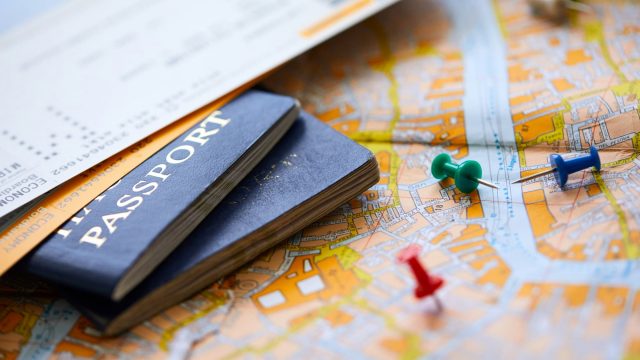Quick Links
Hello, Goodbye | Please, Thank You | Excuse Me | Yes, No, Unsure | Where is… | How Much | Help & Tips
First published in July 2014, zest added in 2017…
Many of us often travel abroad for our holidays where it’s unlikely that those we meet will speak in the same tongue. In heavily tourist-focused areas, it’s possible that those who liaise with tourists, such as shopkeepers, waiters and hotel staff will know a few key phrases to help them get by and keep your custom. Don’t be under the illusion that everyone must be able to speak the same language as you. You can get so much more from your holiday however if you put in the time and effort to learn a few phrases yourself; it’ll make the trip less stressful too with the language barrier taken down.
 Photo by: lemontreeimages/Adobe Stock
Photo by: lemontreeimages/Adobe Stock
While some people may prefer to use as little English as possible when they’re away, to help immerse themselves in the new culture, for others it might be more difficult. Not all of us are built to learn and retain a new language. We’re not suggesting you learn every word of every single country you visit, but just a few key phrases that will help you get advice, tips, and support from local people.
Hello/Goodbye
Starting a conversation appropriately makes the exchange start off on the right foot and helps initiate a pleasant exchange. Saying ‘goodbye’ when you’ve finished means you aren’t walking off, ending the conversation abruptly or rudely.
Please/Thank you
Show that you’re polite and grateful for any help or assistance given. Manners can go a long way when you need or want something. People will be more likely to help you if you show that you’re kind.
 Photo by: berc/Adobe Stock
Photo by: berc/Adobe Stock
Excuse me/Pardon
Again, being polite does pay off. If you’re interrupting someone, show some manners. The phrases can also be used if you don’t understand what the person is saying.
Yes/No/Not sure
These will mostly help you if replying to someone. The words are usually simple and easy to learn and pronounce.
Where is…
Useful to know in a variety of situations when you need directions. When you’re in a new place, the chances are that you’ll get lost at some point and need directions. Endings which are useful to know include toilet, hotel, restaurant, bank, and hospital.
 Photo by: bst2012/Adobe Stock
Photo by: bst2012/Adobe Stock
How much?
This is a vital phrase if you’re travelling on a budget. You’ll need to know how much anything costs before you agree to pay while shopping or dining out. It will also help if you learn numerical values and understand the currency too.
Help
A critical word you should learn wherever you are in the case of an emergency. Should you have any urgent health conditions then you may want to learn useful words that will help people understand should you have any medical issues arise.
Tips for learning useful phrases
The most effective way to learn any language is to speak it. If you have access to a native speaker, ask them for help and speak to them as much as possible. Studying grammar is all very well, but often on holiday you’re going to be using your verbal language skills, not written ones. Get your head out the book and start speaking and practice whenever possible.
Practice it
In conjunction with speaking the language, doing it every day is also imperative. Any opportunity you get, practice. It might be counting to ten whilst you make your morning cup of tea, and then doing it again in the shower, and again on your lunch break. There is no doubt about it, you learn by doing, and then repetition.
There are lots of mobile apps you can download to your phone or tablet that can help you learn.
Check out our 5 best ways to learn a new language, and avoid making these language faux pas.
Written by Jessica Juby.
Make sure you follow us on Twitter and Facebook for the latest travel tips and news. Remember to sign up to our newsletter below for the latest deals.
Subscribe to our newsletter
Want our blogs emailed direct to you? Sign up below to get updates featuring our blogs and car hire top tips. Receive the best deals on car hire straight to your inbox.





